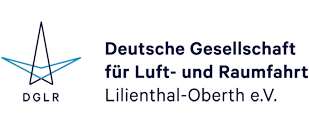DGLR-Publikationsdatenbank - Detailansicht
Titel:
Open Source Mission Control Software for Small Space Projects
Autor(en):
M. Barschke, S. Özkan, M. Johnson
Zusammenfassung:
Many small space projects such as CubeSats, PocketQubs, and sounding rocket experiments are run by student, university or hobbyist groups. Most of these projects require a mission control application to command and monitor the platform and its payload, but these are often developed from a clean sheet at the last minute and the source code of these systems is rarely made available to others to use and build on. We describe the Open Mission Control (OMC) platform that we have developed and open sourced for our own and others projects. The software is developed as a modular system and provides a software framework, which can easily be customised and adapted for a wide range of projects. The first mission that will use the Open Mission Control platform is the myPocketQub 442 payload for the United Kingdom Space Agencys first CubeSat mission: UKube-1. myPocketQub 442 is one of the four payloads selected to fly on this mission, and has been developed by the United Kingdom Students for the Exploration and Development of Space (UKSEDS) student organisation as a spare time project. It consists of a myPocketQub IQEA in payload adaptor configuration with five PocketPayload format subpayloads. The PocketPayload is a compact payload format designed to allow very low cost experimental access to space.
The primary objective of the mission is to demonstrate the utility of the myPocketQub IQEA and PocketPayload formats for small space missions and gain flight heritage for their reference implementations. A secondary objective is to provide a free, or very low cost, platform that can be used by schools to integrate real hands on space missions into the curriculum to inspire school pupils about science and engineering. The number of payloads and the diverse objectives of the myPocketQub 442 project allow Open Mission Control to demonstrate that it is a comprehensive and flexible solution.
The software is designed in such a manner that it can be used at different levels of complexity depending on the type of user operating it. These levels range from showing data in an appealing way for a school class or popular science television programs, to acting as a professional grade mission command, control and monitoring system to be used by student or professional mission controllers. As well as controlling flight hardware, the software will also be used to interact with engineering models connected to the Internet, which will allow monitoring, commanding, and analysing data from this hardware under realistic boundary conditions. The system also has a robust method of providing historical and real time data to thousands of simultaneous clients from the flight hardware and provides the ability to interactively review or playback any previous period of the mission in real time and fast forward modes.
The software, as is the myPocketQub project, is open sourced under the standard Open Source Initiative BSD license and has been developed and tested in parallel for Microsoft Windows, Mac OS X and Linux. We hope that by making the software, ist supporting infrastructure and the myPocketQub 442 project available to anyone who is interested, our work will encourage many groups to use the software for their projects, to make improvements and mission data available to all and to provide a valuable and constantly improving building block for the community.
Veranstaltung:
Deutscher Luft- und Raumfahrtkongress 2011
Medientyp:
Conference Paper
Sprache:
englisch
Format:
21,0 x 29,7 cm, 6 Seiten
Veröffentlicht:
Deutscher Luft- und Raumfahrtkongress Tagungsband - Manuskripte, 2011, 2011; S.1647-1652; 2011; Deutsche Gesellschaft für Luft- und Raumfahrt - Lilienthal-Oberth e.V., Bonn
Preis:
NA
ISBN:
ISSN:
Kommentar:
Klassifikation:
Stichworte zum Inhalt:
Verfügbarkeit:
Bestellbar
Veröffentlicht:
2011
Dieses Dokument ist Teil einer übergeordneten Publikation:
Deutscher Luft- und Raumfahrtkongress Tagungsband - Manuskripte, 2011
